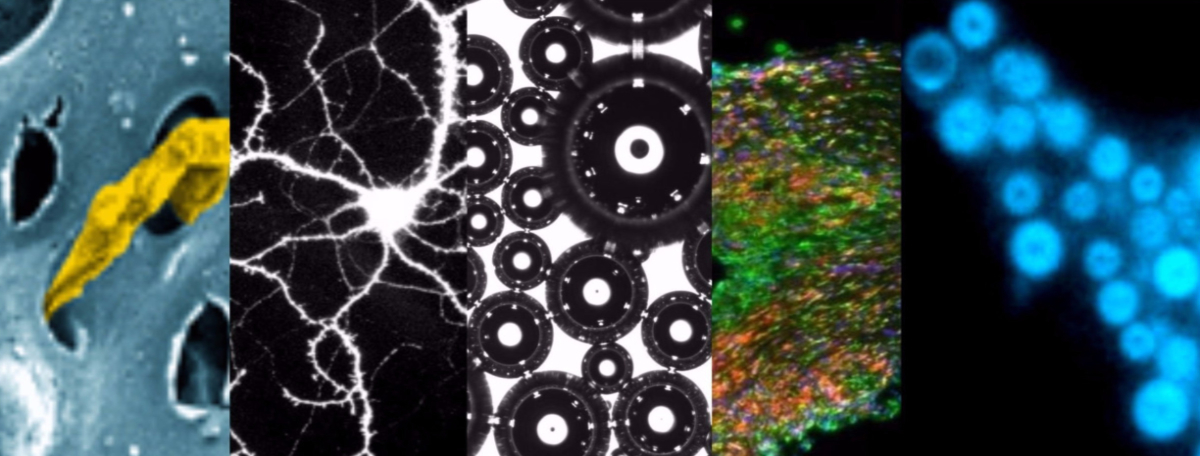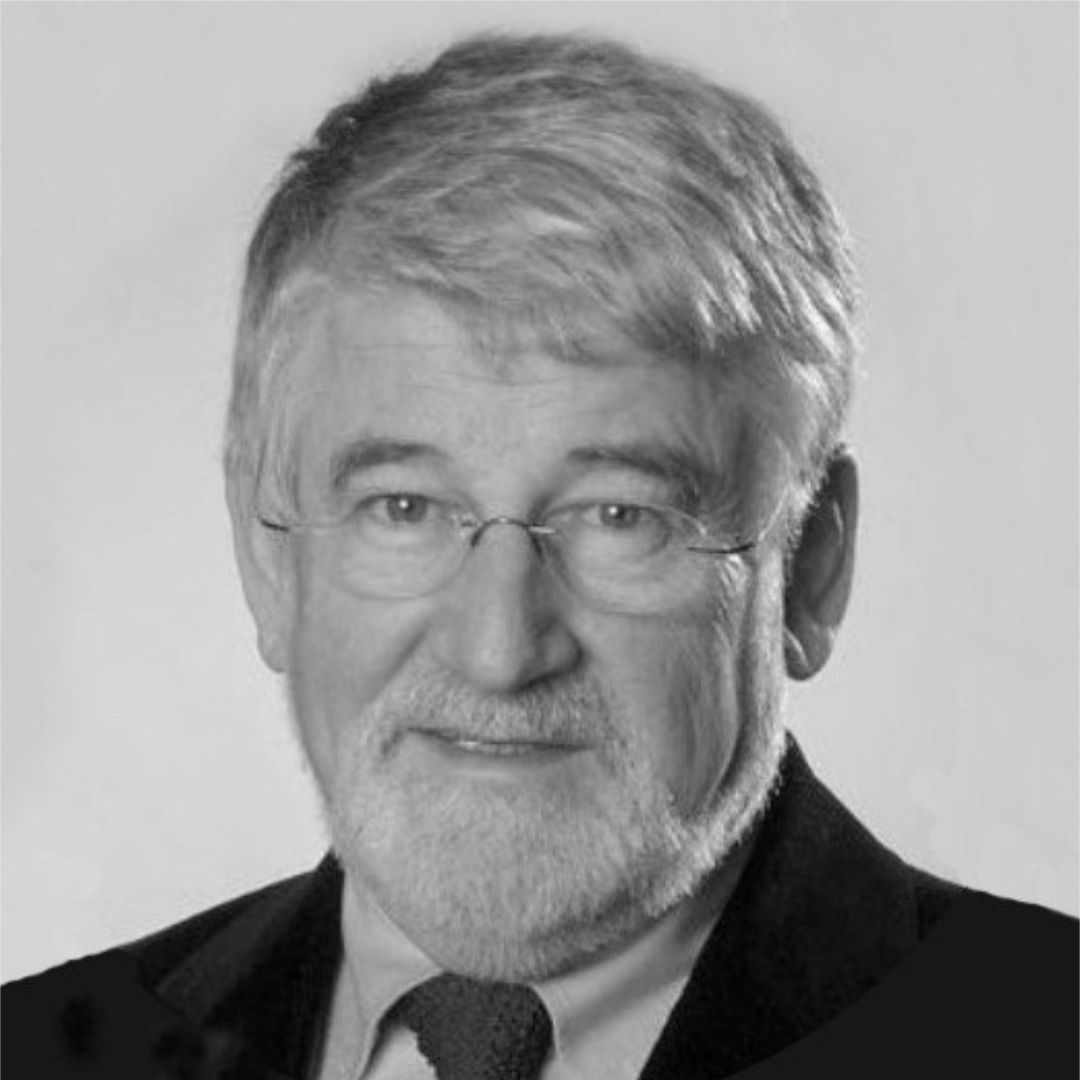home > dpmp > physiologie > index.html.en

Welcome to the website of the Institute of Physiology!
Nachruf Univ.-Prof. Dr. Walter Pfaller

Mit tiefer Trauer und großer Dankbarkeit nehmen wir Abschied von Univ.-Prof. Walter Pfaller, einem herausragenden Wissenschaftler, inspirierenden Lehrenden und hochgeschätzten Kollegen. Geboren am 4. September 1945 in Salzburg, widmete er sein Leben der Wissenschaft und Lehre – stets getragen von der Überzeugung, dass Wissenschaft nur dann ihre volle Wirkung entfaltet, wenn sie mit Engagement, Neugier und Verantwortung betrieben wird. Nach seinem Studium der Humanmedizin prägte er über Jahrzehnte das Institut für Physiologie der Medizinischen Universität Innsbruck, an dem er bis zu seinem Abschied 2010 wirkte. Forschungsaufenthalte an international renommierten Institutionen wie der University of Maryland, dem University College Dublin und der Yale Medical School festigten und erweiterten seine weltweite Reputation.
Sein Lebenswerk und sein unermüdliches Engagement für die Entwicklung alternativer Methoden zu Tierversuchen haben die biomedizinischen Wissenschaften nachhaltig geprägt. Als wissenschaftlicher Leiter des Zentrums für Ersatz- und Ergänzungsmethoden zu Tierversuchen (zet) in Linz und Mitglied des ECVAM Scientific Advisory Boards setzte er sich unermüdlich für die Umsetzung der 3R-Prinzipien (Replacement, Reduction, Refinement) ein. Unter seiner Leitung wurde zet Gründungsmitglied der europäischen Konsensplattform für Alternativen (ecopa) und die von ihm maßgeblich mitgestalteten Linz-Kongresse fanden europaweit große Beachtung und Anerkennung. Für seine wegweisenden Leistungen wurde er mit der Ehrenmedaille der Doerenkamp-Zbinden Stiftung ausgezeichnet – eine Auszeichnung, die nur wenigen Persönlichkeiten verliehen wird.
Über seine wissenschaftlichen Verdienste hinaus war Prof. Pfaller ein begeisternder Lehrer, der Generationen von Studierenden durch sein profundes Wissen, seine Klarheit und seine Leidenschaft für mechanistische Zusammenhänge prägte. Als Mentor forderte und förderte er gleichermaßen Eigenständigkeit, kritisches Denken und Kreativität. Zugleich legte er größten Wert auf eine fundierte Beherrschung der physiologischen Grundlagen: Er liebte es förmlich, Lücken aufzuspüren – doch war es ihm wichtig, diese mit Bedacht und Klarheit wieder zu schließen. Als Kollege war er ein aufmerksamer, zugewandter und wohlwollender Mensch, der stets ein offenes Ohr für andere hatte.
Mit Walter Pfaller verlieren wir nicht nur einen außergewöhnlichen Wissenschaftler und Freund, sondern auch einen warmherzigen, inspirierenden Menschen. Sein Lebenswerk und sein Vermächtnis werden uns weiterhin leiten und in dankbarer Erinnerung bleiben.
Judith Lechner, Thomas Haller, Gerhard Gstraunthaler im Namen des gesamten Instituts für Physiologie der Medizinischen Universität Innsbruck und aller wissenschaftlichen Weggefährten
Die Verabschiedung findet am 11.10.2025 14 Uhr in der Aufbahrungshalle am Innsbrucker Westfriedhof statt.
"Physiology is the study of the functions of life"
The term "physiology" (Greek: physis=nature and logos=teaching) was coined by the French physician, doctor and natural scientist Jean Fernel (1497-1558). Accordingly, physiology addresses the normal biophysical life processes in cells, tissues and organs of living beings and the interaction of all physical and molecular processes in the entire healthy organism. Physiology focuses on the dynamics of biological processes and their causal relationships. The subject areas of human physiology encompass the fundamental life processes at all levels of complexity in all organs, including the nervous system.
Research - relevance for and relation to the clinic
Research at the Institute of Physiology focuses on basic research and preclinical translational research on the (patho)physiology of skeletal muscle, epithelial organs and the nervous system. Using an integrated, interdisciplinary approach, physiological processes are investigated in cellular models, organs and, more recently, in model systems from human iPSCs (induced pluripotent stem cells). There is particular potential for innovation in the projects on sensory functions, calcium channels, nuclear kinases, the intestinal microbiome and non-coding RNAs.
The Institute's researchers are at the forefront of research into pain generation, muscle contraction control, auditory function, calcium signalling, cell membranes and epithelial physiology. We employ a wide range of models and techniques, including human inducible pluripotent stem cell-derived model systems, cell culture, functional imaging, gene and protein expression, calcium microfluorimetry, high-resolution live microscopy and electrophysiology, and we collaborate with local, national and international consortia. We thank the European Commission, the FWF, the FFG and other funding bodies for their financial support.
Teaching - Physiological knowledge as a treasure for the clinic
At the Medical University of Innsbruck, physiology is one of the most important pre-clinical subjects alongside anatomy and biochemistry. Physiology in medical degree programs today covers an extensive range of subjects that are taught in all teaching formats (lectures, seminars, practicals) and represent an important building block in the training of doctors and future researchers in the biomedical sciences for the benefit of patients. Understanding physiological processes is the prerequisite for understanding pathological changes (pathophysiology, clinical subjects) and their therapy, for example in the context of targeted pharmacology.

The schedule in the pre-clinical semesters is packed and there is little time for experimental lectures and discussion of current physiological research content, yet students should still understand the physiological relationships. New studies show that students who regularly attend lectures learn more effectively, not because the content is conveyed more efficiently in frontal teaching, but because the exchange between students about lecture content is an effective way of imparting knowledge and is also fun. We therefore invite all students to think along and get actively involved.
Discuss physiology with us and with each other!
Neurobiology of the development of pain
University Professor Dr Michaela Kress
Chronic pain disorders, which affect around 20% of people worldwide, represent a major socio-economic burden for society as well as for patients and their families. The Kress lab investigates the deregulated molecular signalling along the pain pathway that contributes to pain pathogenesis, with a particular focus on neuroimmune interactions involving cytokines such as interleukin-6 and its signal transducer gp130 as well as mRNA::non-coding RNA interactions. To bridge the translational gap between preclinical research and the lack of efficient therapies for patients, iPSC models of nociception are optimised to approximate native human functions using a comprehensive methodological approach that includes state-of-the-art electrophysiology, molecular biology, complex bioinformatics and the development of software tools such as the NOCICEPTRA app.
Calcium channel function
University Professor Dr Bernhard E. Flucher
Voltage-gated calcium channels (Fig. 2) are the only proteins that can perceive electrical signals at the cell surface and convert them into cell functions such as the contraction of skeletal and cardiac muscles or synaptic transmission in the nervous system. Conversely, impaired calcium channel function is the cause of many neurological or psychiatric disorders, and calcium channels are the main targets for therapeutics used to treat such conditions. Our research spans the entire spectrum from the study of the biophysical mechanisms of channel function at the molecular level to their role in human physiology as well as in nerve and muscle diseases. We apply state-of-the-art genetic, molecular, biophysical, physiological and computational technologies.
Physiology of the gastrointestinal tract
Associate University Professor Dr Johannes Fürst
The intestinal mucosa represents a selective barrier that enables nutrient absorption and protection from unwanted lumen contents. We are currently interested in the function of the non-gastric H+/K+-ATPase ATP12A in the regulation of the colonic barrier and in the role of selected neuropeptides and cytokines in the physiology of colonocytes. The methods used are transcriptomics, western blotting, measurements of transepithelial electrical resistance, histological staining, cell culture and microscopy.
Respiratory cell physiology
Associate Professor Dr Thomas Haller
Reversible oxygen binding by haemoglobin is of fundamental importance in medicine and physiology, but has come up against technical limitations in the past. We have developed new methods that can be used as an analytical service in daily clinical practice. New aspects of O2 transport in relation to high altitude, accidental hypoxaemia, relevant clinical interventions and pharmacological/dietary modulation are being explored. Other current studies focus on red blood cell lifespan and its determinants using allometric approaches as well as changes in oxygen affinity during haemodialysis.
Human kidney modelling system
Associate University Professor Dr Judith Lechner
The research team uses iPSC lines from the IMI - StemBANCC initiative to establish and characterise in vitro model systems for the investigation of mechanisms of sex-specific differences in cellular responses to environmental challenges and toxic stimuli. The group promotes the implementation of the SAGER guidelines (sex and gender equity in research) in preclinical research. Courses for students and advice for researchers provide the latest information on novel microphysiological systems and in vitro methods to replace animal testing. (https://www.i-med.ac.at/muianimalfree/index.html.de)
Auditory neuroscience
Dr Christian Vogl
In the mammalian inner ear, synaptic coding of sounds occurs through ultrafast and tightly regulated neurotransmission between ribbon synapses of the inner hair cell (IHC) and postsynaptic neurons of the spiral ganglion. While the mature physiology of these unconventional synapses is the focus of current research, the fundamental aspects of synaptogenesis and developmental maturation are still unclear. Therefore, our group applies a comprehensive methodological approach that combines fluorescence live-cell imaging of IHCs - to follow the development of ribbon synapses in real time - with immunohistochemical analyses and super-resolution microscopy to identify the underlying cell biological processes.
Junior Research Group
Priv.-Doz. Dr Marta Campiglio
recently identified two different molecular interactions between the voltage sensor of excitation-contraction coupling CaV1.1 and the scaffold protein STAC3. STAC3 plays multiple roles in EC coupling, as it is essential for the function of CaV1.1 as a voltage sensor and for conformational coupling with RyR1. Her team is currently investigating the contribution of the two interactions to these diverse STAC3 functions.
Junior Research Group
Dr Theodora Kalpachidou
is investigating the role of microRNAs (miRNAs) in the complex responses to peripheral nerve injury in the context of neuropathic pain and neuronal regeneration. She aims to understand how these small RNA molecules regulate gene networks, how miRNA-driven mechanisms promote neuroregeneration and how they can be developed into new therapeutic approaches.
Junior Research Group
Dr Kai Kummer
is exploring plastic changes in the brain that lead to the psychological side effects of chronic pain. He investigates cholinergic projections from the basal forebrain to the medial prefrontal cortex as a promising pathway in the development of these comorbidities. To gain new insights into the mechanisms, he uses molecular tracing techniques, in vitro electrophysiological recordings, in vivo behavioural tests and opto- and chemogenetic stimulation.
Institut für Physiologie

Levke Holm
Tel.: 0043 (0)512 9003 70801
Mette Fjelrad
Tel.: 0043 (0)512 9003 70802

Levke Holm
Tel.: 0043 (0)512 9003 70801
Mette Fjelrad
Tel.: 0043 (0)512 9003 70802




